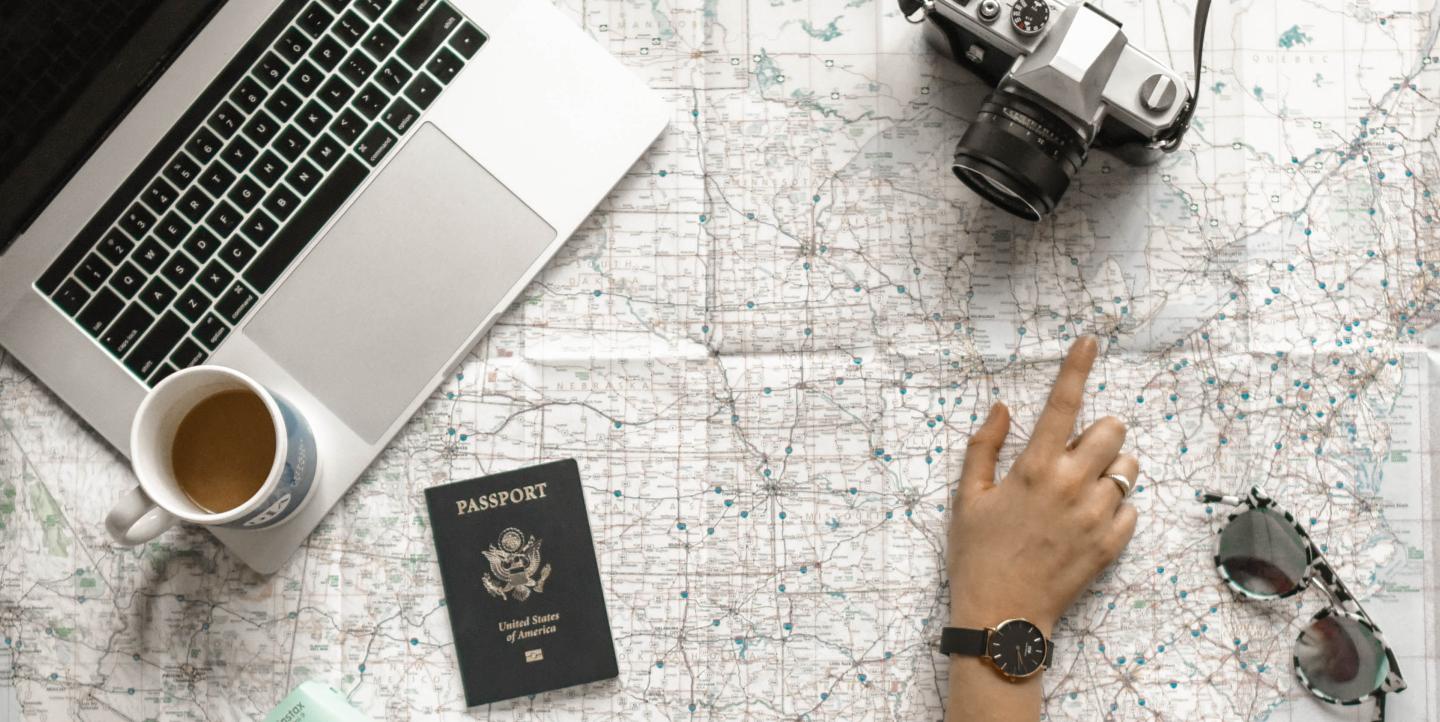While the internet and globalism make reporting on a country from abroad easier than ever, journalists must be aware of the risk of spreading misinformation or harming sources when not reporting directly on the ground.
Verifying sources or fact-checking is often more difficult from outside the country, particularly in conflict-ridden regions or those lacking in press freedom. Without proper care to understand the context and history of a region, a journalist abroad can also fall prey to writing with a lack of nuance, and misrepresenting issues and communities.
Here is what three journalists experienced with reporting from outside of a given country suggest to ensure accurate and ethical reporting.
Overcome the language barrier
Non-native journalists abroad first have to address any language barrier.
Despite speaking functional Burmese, Emily Fishbein prefers to team up with local journalists to conduct remote interviews to ensure accuracy and precision. Given the dismal security situation in Myanmar since the February 2021 coup, any misinformation could not only compromise the integrity of her article, but also bring harm to her sources.
Whenever possible, Fishbein also shares the byline and splits the article payment with the local journalist(s) who assist with interviews and help to co-write the article.
Even if you do already speak the language, learning the technical language of your subject and the localisms of your source is important, said Jared Olson, a freelance journalist who reports on Honduras, and who splits his time between Honduras and Mexico. “If someone is talking about technical subjects, or is talking in a patois like a rural farmer, it is far more slurred or [uses] lots of localisms. It's hard to understand,” he said.
Jayson Casper, the Middle East correspondent for Christianity Today, who also covers countries such as Ukraine and Nigeria, determines whether to use a translator depending on the situation. “I speak Arabic and am generally comfortable enough to conduct a formal interview, though I would ask the source’s patience and offer them the opportunity to review their direct quotes for accuracy,” he said. “I would use a translator at higher levels where accuracy is critical."
Maintain the safety of sources
When covering areas with limited press freedom or ongoing armed conflicts, the safety of sources is often at stake. Putting their security first is therefore a priority.
“I follow the lead of my sources, as they are generally better attuned than I am to the risks they carry for speaking to a journalist. If I sense a risk on their behalf that they do not, we review any potential consequences,” said Casper. “If [it is] best for a source to remain quiet, to the detriment of the article, it is not my place to push them. Usually, the story can still be told through different sources.”
In Myanmar, Fishbein takes multiple steps to ensure the safety of sources and local journalists. She tries to arrange and conduct interviews over secure messaging apps like Signal, and takes further steps to prevent military surveillance such as using disappearing messages.
She also offers local reporting partners the chance to input throughout the writing process and use a pen name for their safety. “I always check in with my teammates before we pitch the article and then throughout the article as to whether they feel comfortable and okay with the direction that it's going and also if they would prefer to use a pseudonym for that article.” Since the 2021 military coup, the politically sensitive context requires that journalists and their sources be concerned about social punishment from friends and family that sources might experience after speaking to the media, according to Fishbein.
In Honduras, finding sources who can go on record about human rights abuses, state crimes or corporate crimes can also be difficult, said Olson. Once, while documenting a particular abuse by the Honduran government, a key witness that Olson interviewed requested that his quotes be completely removed due to a change in security. For Olson, those kinds of requests should be respected.
“It was devastating in one sense, but I knew we had to do it. We cut that from the piece, [and] the piece turned out fine,” he said.
Ensure accuracy
Journalists abroad should take every effort to fully understand the local context and situation they are covering. “A weak article can do more harm than good. It's quite important to have an article that comprehensively shows the situation in a way that can bring new information to readers, and that can also be very clear and accurate,” said Fishbein.
Working closely with local journalists allows Fishbein to gain more depth and understanding of the particular context of her story. She and her reporting partners also make an effort to conduct extra interviews and collect more material than will typically be included in the story to ensure accuracy of information.
“[Then], everything can be cross checked, and we can understand the background [...] what is the context and history of the issue, and then who are the different people who are involved and the different perspectives on it,” she said.
Even if you cannot be physically present in the country, Olson noted the importance of consistently reporting on a single country or region instead of relying on one-off pieces that can be characteristic of so-called "parachute reporting."
"The problem is that oftentimes [parachute reporters] lack the context of having repeatedly spent time working with these countries. You at least need to be consistently covering the place to understand what's going on," he said.
Casper works to ensure accuracy by reading widely, double checking facts, and listening to intuition and common sense.
“When it comes to facts related by my sources, it is the same as with any reporting — double check and verify with other sources, and use your intuition to sense if their testimony accords with my understanding of reality. We have to educate ourselves very quickly about unfamiliar matters, so we need the necessary humility to doubt ourselves,” he said.
In all cases, journalists have a duty to convey what is happening as well as possible. In areas with high conflict, opinions and facts may vary drastically; how they are gathered and relayed could mean life or death for people on the ground.
Above all, journalists should keep the core ethics of journalism in mind. “Of course, the journalist also has his or her convictions and preconceptions, and has to arrange the story in a manner that will interest the reader and ensure their deeper understanding of the issue," said Casper. "I find that by keeping to the first two principles given above, I keep myself sufficiently out of the story."
Photo by Element5 Digital on Unsplash.


